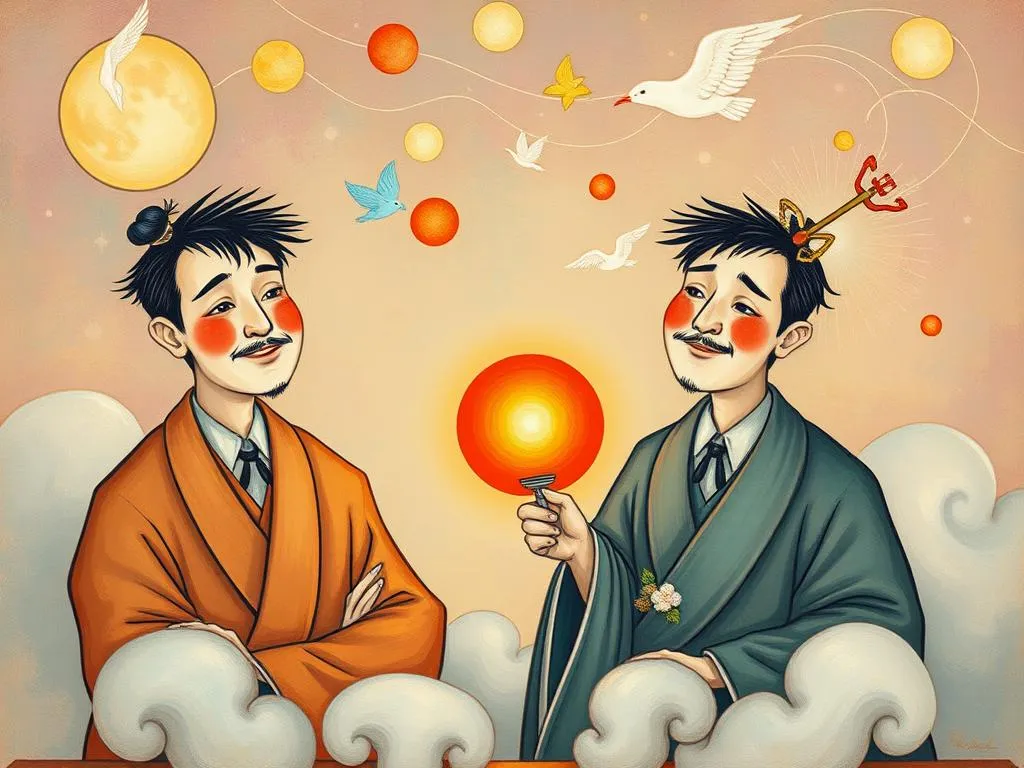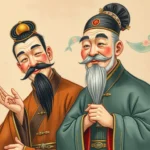
Dreams are a captivating window into our subconscious, often reflecting our thoughts, experiences, and emotions in ways that can be both puzzling and enlightening. Among the myriad dream themes that people experience, dreaming about Japanese men can evoke a range of feelings and interpretations. This dream theme may resonate with those who have a connection to Japanese culture, whether through personal relationships, travel experiences, or media influences. Understanding the symbolism behind these dreams can provide insight into personal identity, cultural appreciation, and interpersonal dynamics.
Symbolism and Meaning
When exploring the symbolism of dreaming about Japanese men, it is essential to consider the various elements that may be at play. Japanese culture is rich in symbolism, from the serene beauty of nature to the intricate details of traditional attire. In dreams, Japanese men can represent qualities such as discipline, respect, and artistry. For instance, a Japanese man in a dream might symbolize the dreamer’s quest for balance in life or a desire to embody certain positive attributes associated with Japanese traditions.
Another perspective on this dream theme is its connection to cultural identity. If the dreamer identifies with Japanese culture or has a strong interest in it, the appearance of Japanese men in dreams may reflect an exploration of their own cultural identity or a longing for connection to those roots. This exploration can be particularly relevant for individuals who may feel disconnected from their heritage or who are navigating intercultural relationships.
Beyond cultural representation, the characteristics of the Japanese men in the dream can also provide deeper insights. For example, if the dream involves a wise elder figure, it may indicate a search for guidance or wisdom in waking life. Conversely, if the dream features a younger man, it could suggest themes of youth, energy, and potential. The emotional tone of the dream—whether it feels positive, negative, or ambiguous—also plays a crucial role in its interpretation. A warm interaction with a Japanese man might signify comfort and acceptance, while a conflict may point to inner struggles or unresolved issues related to cultural understanding or personal relationships.
Key Scenarios and Variations
The scenarios in which Japanese men appear in dreams can greatly influence their meaning. For instance, dreaming about a Japanese man in traditional clothing, such as a kimono, may evoke feelings of nostalgia and connection to cultural heritage. This dream scenario may suggest a desire to embrace one’s roots or an appreciation for the beauty and depth of tradition. It may also signify that the dreamer is seeking harmony and balance in their life, mirroring the graceful aesthetics of traditional Japanese culture.
In contrast, dreaming of a Japanese man in a modern context, such as a business setting, can symbolize ambition and the pursuit of success. This scenario may reflect the dreamer’s aspirations and determination to achieve their goals. It can also indicate a fascination with modern Japanese society and the blend of tradition with contemporary life. If the dream involves collaboration or teamwork with a Japanese man, it may suggest a desire for cooperation and mutual respect in personal or professional relationships.
Conversely, scenarios involving conflict or misunderstandings with Japanese men can highlight the dreamer’s fears or anxieties regarding cultural differences. This type of dream might reveal feelings of inadequacy or the struggle to communicate effectively across cultural boundaries. The emotional context of the dream—whether it feels tense, frustrating, or enlightening—can provide valuable clues to the dreamer’s current challenges in their waking life.
Another intriguing variation is dreaming about famous Japanese figures, such as artists, actors, or historical leaders. Such dreams can signify admiration and a desire to emulate the qualities these figures embody. For instance, dreaming of a well-known Japanese artist may signify the dreamer’s yearning for creativity and self-expression, while a dream about a historical figure may reflect a search for leadership or guidance in navigating personal challenges.
Real-Life Connections and Takeaways
Understanding the symbolism of dreams involving Japanese men can lead to profound insights into the dreamer’s real-life situations and relationships. To connect these dreams to waking life, it is helpful to engage in self-reflection. Consider the emotions and themes that surfaced during the dream. Were there feelings of harmony, tension, curiosity, or admiration? These emotions can often mirror current experiences or conflicts the dreamer is facing.
For those who dream frequently about Japanese men, it may be beneficial to explore personal connections to Japanese culture. This exploration could involve learning more about its traditions, arts, and philosophies. Engaging with Japanese media, such as literature, films, or art, can provide further context and enhance the dreamer’s appreciation for the culture. This cultural immersion may also foster a sense of belonging and understanding in a broader world.
Additionally, examining interpersonal relationships can yield valuable insights. If the dream features positive interactions with Japanese men, it may suggest that the dreamer values respect and collaboration in their relationships. On the other hand, if the dream involves conflict, it could indicate unresolved issues or the need for better communication with others, regardless of their cultural background.
Dreamers may also consider journaling about their dreams as a way to track recurring themes and symbols. Keeping a dream journal can help identify patterns over time, leading to a deeper understanding of personal motivations and desires. When reviewing these dreams, the dreamer might ask themselves questions like, “What aspects of my life resonate with the symbols present in this dream?” or “How can I incorporate the positive qualities represented in the dream into my daily life?”
Ultimately, the insights gained from dreaming about Japanese men can serve as a catalyst for personal growth and cultural appreciation. By reflecting on the dream’s symbolism and connecting it to real-life experiences, individuals can uncover new perspectives on their identity, relationships, and aspirations.
In conclusion, dreaming about Japanese men is a rich and multifaceted theme that invites exploration and self-reflection. Through understanding the symbolism and variations in these dreams, individuals can tap into deeper meanings that resonate with their personal journeys. Whether the dream evokes feelings of admiration, cultural curiosity, or challenges in communication, it offers a unique opportunity to engage with one’s identity and the world around them. As we navigate our dreams, let us embrace the insights they offer and seek to integrate their wisdom into our waking lives for a more enriched experience.







